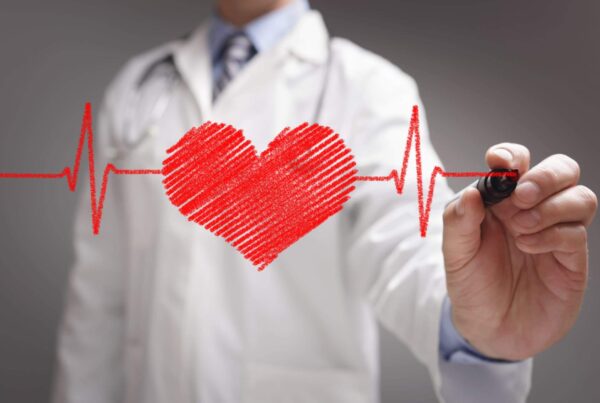Good digestive health is foundational to overall well-being, affecting everything from energy levels to immune function, mental clarity, and even mood. Our digestive system plays a crucial role in breaking down food, absorbing nutrients, and eliminating waste. When the digestive system is working optimally, the body functions efficiently, and we feel our best. Conversely, digestive problems can lead to a host of health issues, impacting not just the gut but also other organs and systems throughout the body. Digestive wellness is therefore a cornerstone of a healthy life.
In the third panel discussion of The Health Conclave 2024, Dr Ashutosh Mohapatra and Dr Sonmoon Mohapatra tried spreading awareness on Gastric Cancer.
Gastric cancer refers to cancer that starts in the stomach. It typically begins in the inner lining of the stomach, where it forms adenocarcinomas (cancers of the glandular cells). Though rare, lymphomas, GISTs (gastrointestinal stromal tumors), and other types of cancer can also arise in the stomach.
The stomach is a muscular organ located between the esophagus and small intestine, and it is responsible for digesting food. Gastric cancer can affect different parts of the stomach, such as the cardia (top part), body (middle part), or antrum (lower part). The cancer can spread locally to nearby tissues and organs or metastasize (spread) to distant areas like the liver, lungs, or lymph nodes.
2. Risk Factors for Gastric Cancer
Several factors can increase the risk of developing gastric cancer, although many people with risk factors may never develop the disease. The key risk factors include:
a. Infection with Helicobacter pylori (H. pylori)
- H. pylori is a bacterium that can infect the stomach lining, causing chronic inflammation and damage. Over time, this inflammation increases the risk of developing gastric cancer. It’s estimated that H. pylori infection is responsible for about 60-70% of gastric cancers worldwide.
b. Dietary Factors
- High salt intake: Diets rich in salted, pickled, or smoked foods, common in some Asian and South American diets, are linked to a higher risk of gastric cancer.
- Low fruit and vegetable consumption: A diet low in fresh fruits and vegetables (which are rich in antioxidants) may contribute to a higher risk of gastric cancer.
- Red and processed meats: Consumption of red meats and processed meats (e.g., bacon, sausages) has been associated with an increased risk of various cancers, including gastric cancer.
c. Family History and Genetics
- Having a family history of gastric cancer can increase the risk. Certain inherited genetic mutations (e.g., CDH1 mutations) may predispose individuals to familial gastric cancer.
d. Age and Gender
- Gastric cancer is more common in older adults, particularly those over the age of 55. Men are more likely than women to develop gastric cancer.
e. Smoking
- Cigarette smoking is a major risk factor for gastric cancer, especially cancers of the cardia (upper part of the stomach).
f. Chronic Gastritis and Other Stomach Conditions
- Chronic gastritis (inflammation of the stomach lining), which can be caused by H. pylori infection, or Barrett’s esophagus, a condition caused by long-term acid reflux, can increase gastric cancer risk.
g. Previous Stomach Surgery
- People who have undergone partial removal of the stomach or have conditions like gastric ulcers may have a higher risk of developing gastric cancer, particularly if there was residual H. pylori infection.
3. Symptoms of Gastric Cancer
In the early stages, gastric cancer may not cause noticeable symptoms. As the tumor grows, it can lead to more severe and obvious signs, but these symptoms can be vague and often overlap with those of other gastrointestinal disorders. Common symptoms of gastric cancer include:
- Indigestion or discomfort in the stomach area
- Persistent nausea or vomiting
- Loss of appetite (especially for meat or protein-rich foods)
- Unexplained weight loss
- Feeling full after eating only a small amount of food (early satiety)
- Abdominal pain or bloating
- Difficulty swallowing (if the tumor is located near the junction of the stomach and esophagus)
- Fatigue or weakness
- Blood in the stool (leading to black, tarry stools) or vomiting blood
It’s important to note that these symptoms can be caused by other, less serious conditions like ulcers, gastritis, or acid reflux. However, if these symptoms persist or worsen, a visit to a healthcare provider is essential for further evaluation.
4. Diagnosis of Gastric Cancer
Diagnosis of gastric cancer typically involves several tests, including:
a. Endoscopy (Gastroscopy)
- A flexible tube with a camera (endoscope) is inserted through the mouth into the stomach to directly visualize any abnormalities. This is one of the most common and effective ways to diagnose stomach cancer.
- During endoscopy, tissue samples (biopsy) can be taken from suspicious areas to check for cancer cells.
b. Biopsy
- A biopsy is crucial for confirming the presence of cancer. It involves removing a small sample of tissue from the tumor, which is then examined under a microscope.
c. Imaging Tests
- Imaging tests like CT scans, MRI scans, or ultrasounds may be used to determine the extent (stage) of the cancer, assess whether it has spread to nearby lymph nodes or organs, and guide treatment planning.
- Endoscopic ultrasound can provide detailed images of the stomach lining and surrounding tissues.
d. Blood Tests
- While there is no blood test to definitively diagnose gastric cancer, certain blood tests (e.g., for tumor markers like CEA or CA 19-9) can be used to assess the presence of cancer or track its progress. However, these tests are not specific to gastric cancer and are used alongside other diagnostic methods.
5. Staging of Gastric Cancer
The stage of gastric cancer refers to how far the cancer has spread in the body. Staging is essential for determining the most appropriate treatment. The most commonly used staging system is the TNM system (Tumor, Node, Metastasis), which looks at:
- T: The size of the tumor and how deeply it has penetrated the stomach wall.
- N: Whether cancer has spread to nearby lymph nodes.
- M: Whether cancer has metastasized to distant organs, such as the liver, lungs, or peritoneum.
Gastric cancer can be staged from Stage 0 (in situ), which is very localized, to Stage IV, where the cancer has spread widely.
6. Treatment Options for Gastric Cancer
Treatment for gastric cancer depends on the stage of the cancer, the location, and the patient’s overall health. Common treatment options include:
a. Surgery
- Partial or total gastrectomy: The most common surgical procedure for gastric cancer is the removal of part or all of the stomach. The surrounding lymph nodes may also be removed to prevent cancer spread.
b. Chemotherapy
- Chemotherapy uses powerful drugs to kill cancer cells. It can be used before surgery (neoadjuvant therapy) to shrink the tumor, after surgery (adjuvant therapy) to kill any remaining cancer cells, or as the main treatment for advanced cancer.
c. Radiation Therapy
- Radiation therapy uses high-energy rays to kill cancer cells or shrink tumors. It is often used in combination with chemotherapy, particularly for tumors that are difficult to remove surgically.
d. Targeted Therapy
- Targeted therapy uses drugs that specifically target molecules involved in cancer cell growth. These therapies can be used to treat certain types of gastric cancer that have specific genetic mutations or overactive pathways.
e. Immunotherapy
- Immunotherapy involves drugs that help the body’s immune system recognize and attack cancer cells. It may be used for advanced or metastatic gastric cancer, particularly for cancers with certain genetic markers (such as PD-L1 expression).
f. Palliative Care
- In cases where the cancer is too advanced to be treated with curative intent, palliative care can help improve quality of life by managing symptoms like pain, obstruction, and bleeding.
7. Prevention of Gastric Cancer
While gastric cancer cannot always be prevented, certain lifestyle changes and practices can reduce the risk:
a. Helicobacter pylori Treatment
- Eradicating H. pylori infection with antibiotics can significantly lower the risk of gastric cancer, especially in people with chronic gastritis.
b. Healthy Diet
- Eating a diet rich in fruits, vegetables, and whole grains while limiting processed meats and salty foods may reduce the risk of gastric cancer.
c. Quit Smoking
- Avoiding smoking is one of the most effective ways to reduce the risk of gastric cancer, as smoking is a known risk factor.
d. Regular Check-ups
- For those at high risk (e.g., with a family history or H. pylori infection), regular screening or endoscopy may help detect gastric cancer at an earlier, more treatable stage.



